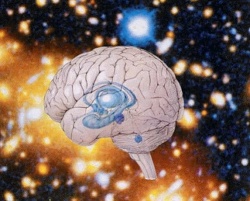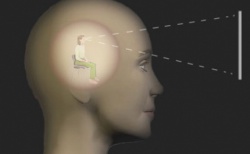Manual of Pramana - Reading Four: Causes and Results
Selection from the collected topics:
Causes and Results
The selection here is from the monastic textbook entitled An Explanation of the
Science of Logic, included in the Advanced Path of Reasoning, a Section from the “Key to the Logic Machine,” a Presentation of the Collected Topics which Clarifies the Meaning of the Great Scriptures on Valid Perception (Tsad-ma’i gzhung-don ‘byed-pa’i bsdus-grva’i rnam-par bshad-pa rigs-lam ‘phrul gyi lde’u-mig las rigs-lam che-ba rtags-rigs kyi skor). The text was written by Purbuchok Jampa Tsultrim Gyatso (1825-1901), who in his day held the position of Tutor to the Dalai Lama.
Please note that indented statements are usually those given by the opponent. Responses within brackets are those that are usually left unwritten in the Tibetan text, and are understood to be there because of the context following each.
Here is the fifth section, which is the more elementary presentation on causes and results. For this presentation we will first refute the position of our opponents, then present our own position, and then finally eliminate their rebuttal.
Here is the first. Suppose someone comes and makes the following claim:
Anything which can be established as existing is always either a cause, a result, or both.
Consider “knowable things.”
So is it then [always either a cause, a result, or both]?
Because it is [a thing which can be established as existing).
[It's incorrect to say that it is a thing which can be established as existing.]
Suppose you say that it’s incorrect [to say that "knowable things" is a thing which can be established as existing).
Consider this same thing.
It is so [a thing which can be established as existing),
Because it can be established through valid perception as existing.
[Then I agree with your original statement: "knowable things" is always either a cause, a result, or both.]
Suppose you agree with our original statement.
Consider this same thing.
It is not so, that “knowable things” is either a cause, a result, or both;
Because it is not a working thing.
[It's not correct to say "knowable things" is not a working thing.]
Suppose you say that it’s not correct [to say that "knowable things" is not a working thing].
Consider this same thing.
It is so true [that it's not a working thing],
Because it is an unchanging thing.
_______________
Suppose someone comes and makes the following claim:
Anything which is a cause can never be a result.
Consider a working thing.
So is it then true [that it can never be a result]?
Because it is [a cause).
[It doesn't necessarily follow.]
But you have already agreed that it does necessarily follow.
[It's not correct to say that a working thing is a cause.]
Suppose you say that it’s not correct [to say that a working thing is a cause).
Consider this same thing.
It is so [a cause),
Because it has its own result.
[It's not correct to say that a working thing has its own result.]
Suppose you say that it’s not correct [to say that a working thing has its own result].
Consider this same thing.
It does so [have its own result],
Because the working thing as it will be the moment after it is the result of the working thing.
[It's not correct to say that the working thing as it will be the moment after it is the result of the working thing.]
Suppose you say that it’s not correct [to say that the working thing as it will be the moment after it is the result of the working thing].
Consider this same thing.
It is so true that the working thing as it will be the moment after it is the result of the working thing,
Because it is a produced thing.
[Then I agree with your original statement: a working thing can never be a result.]
Suppose you agree with our original statement; [that is, suppose you say that a working thing can never be a result].
Consider this same thing.
It is so a result,
[It's not correct to say that a working thing has its own cause.]
Suppose you say that it’s not correct [to say that a working thing has its own cause).
Consider this same thing.
It does so [have its own cause),
Because the working thing as it was the moment before it is its cause.
[It's not correct to say that the working thing as it was the moment before it is its cause.]
Suppose you say that it’s not correct [to say that the working thing as it was the moment before it is its cause).
Consider this same thing.
It is so true, [that the working thing as it was the moment before it is its cause),
Because it is a working thing.
_______________
Suppose someone comes and makes the following claim:
Nothing which is a direct cause can ever be an indirect cause.
Consider a working thing.
Is it then so, [that it can never be an indirect cause)?
Because it is [a direct cause).
[It's not correct to say that a working thing is a direct cause.]
Suppose you say that it’s not correct [to say that a working thing is a direct cause).
Consider this same thing.
It is so [a direct cause),
Because it is a direct cause for the working thing as it will be the moment after it.
[It's not correct to say that a working thing is a direct cause for the working thing as it will be the moment after it.]
Suppose you say that it’s not correct [that a working thing is a direct cause for the working thing as it will be the moment after it].
Consider this same thing.
It is so a direct cause for the working thing as it will be the moment after it,
Because it’s a working thing.
[Then I agree with your original statement: a working thing can never be an indirect cause.]
Suppose you agree to our original statement.
Consider this same thing.
It is so an indirect cause,
Because it is an indirect cause of the working thing as it will be the moment after the working thing as it will be the moment after it.
[It's not correct to say that a working thing is an indirect cause of the working thing as it will be the moment after the working thing as it will be the moment after it.]
Suppose you say that it’s not correct [to say that a working thing is an indirect cause of the working thing as it will be the moment after the working thing as it will be the moment after it].
Consider this same thing.
It is so an indirect cause of the working thing as it will be the moment after the working thing as it will be the moment after it,
Because it is a produced thing.
_______________
Suppose someone comes and makes the following claim:
Nothing which is a direct result can ever be an indirect result.
Consider a working thing.
So can it never then be [an indirect result]?
Because it is [a direct result].
[It's not correct to say that a working thing is a direct result.]
Suppose you say that it’s not correct [to say that a working thing is a direct result].
Consider this same thing.
It is so [a direct result],
Because a working thing is a direct result of the working thing as it was the moment before it.
[It's not correct to say that a working thing is a direct result of the working thing as it was the moment before it.]
Suppose you say that it’s not correct [to say that a working thing is a direct result of the working thing as it was the moment before it].
Consider this same thing.
It is so a direct result of the working thing as it was the moment before it,
Because it’s a thing which is made.
[Then I agree with your original statement: a working thing can never be an indirect result.]
Suppose you agree with our original statement.
Consider this same thing.
It is so an indirect result,
Because it is an indirect result of the working thing as it was the moment before the working thing as it was the moment before it.
[It's not correct to say that a working thing is an indirect result of the working thing as it was the moment before the working thing as it was the moment before it.]
Suppose you say that it’s not correct [to say that a working thing is an indirect result of the working thing as it was the moment before the working thing as it was the moment before it].
Consider this same thing.
It is so [an indirect result of the working thing as it was the moment before the working thing as it was the moment before it],
Because it is a thing that was produced.
_______________
Suppose someone comes and makes the following claim:
Anything that is a cause for a working thing is always a direct cause for the working thing.
Consider the working thing as it was the moment before the working thing as it was the moment before it.
So is it then [a direct cause for the working thing]?
Because it is [a cause for the working thing].
[It doesn't necessarily follow.]
But you already agreed that it does necessarily follow.
[It's not correct to say that the working thing as it was the moment before the working thing as it was the moment before it is a cause for the working thing.]
Suppose you say that it’s not correct [to say that the working thing as it was the moment before the working thing as it was the moment before it is a cause for the working thing].
Consider this same thing.
It is so [a cause for the working thing],
Because it is the working thing as it was the moment before it.
[Then I agree to your original statement: the working thing as it was the moment before the working thing as it was the moment before it is a direct cause for the working thing.]
Suppose you agree to our original statement, [which is to say, the working thing as it was the moment before the working thing as it was the moment before it is a direct cause for the working thing].
Consider this same thing.
It is not so, [that it is a direct cause of the working thing],
Because it is an indirect cause of the working thing.
[It's not correct to say that it is an indirect cause of the working thing.]
Suppose you say that it’s not [an indirect cause of the working thing.]
Consider this same thing.
It is so [an indirect cause of the working thing],
Because the working thing is its indirect result.
[It's not correct to say that a working thing is an indirect result of the working thing as it was the moment before the working thing as it was the moment before it.]
Suppose you say that it’s not correct to say [that a working thing is an indirect result of the working thing as it was the moment before the working thing as it was the moment before it].
It is so true, that a working thing is an indirect result of the working thing as it was the moment before the working thing as it was the moment before it,
Because working things are established as being the indirect results of the working things as they were the moment before the working things as they were the moment before them; and as the direct results of the working things as they were the moment before them. And working things as they were the moment before the working things as they were the moment before them are established as being the indirect causes of working things, while working things as they were the moment before themare established as being the direct causes of those working things.
_______________
Suppose someone comes and makes the following claim:
Anything which is the direct result of a working thing must always be a result corresponding to that which has grown directly fromthe working thing.
Consider the working thing as it will be the moment after it.
So is it then [a result corresponding to that which has grown directly fromthe working thing]?
Because it is [a direct result of the working thing].
[It doesn't necessarily follow.]
But you already agreed that it does necessarily follow.
[It's not correct to say that a working thing as it will be the moment after it is a direct result of the working thing.]
Suppose you say that it’s not correct [to say that a working thing as it will be the moment after it is a direct result of the working thing].
It is so true, that a working thing as it will be the moment after it is a direct result of the working thing,
Because it is a changing thing.
[Then I agree to your original statement: a working thing as it will be the moment after it is a result corresponding to that which has grown directly fromthe working thing.]
Suppose you agree to our original statement, [and say that a working thing as it will be the moment after it is a result corresponding to that which has grown directly fromthe working thing.]
Consider a working thing as it will be the moment after it.
It is not a result corresponding to that which has grown directly fromthe working thing,
Because it is something which occurs at the same time as that which has grown directly fromthe working thing.
[It's not correct to say that a working thing as it will be the moment after it is something which occurs at the same time as that which has grown directly fromthe working thing.]
Suppose you say that it’s not correct [to say that a working thing as it will be the moment after it, is something which occurs at the same time as that which has grown directly fromthe working thing].
Consider this same thing.
It is so [something which occurs at the same time as that which has grown directly fromthe working thing],
Because it is something which grows at the same time as the direct result of the working thing.
[It's not correct to say that a working thing as it will be the moment after it is something which grows at the same time as the direct result of the working thing.] It is so [something which grows at the same time as the direct result of the working thing],
Because (1) there is no point in time where the working thing as it will be the moment after it has already occurred, but where the direct result of the working thing has yet to grow; and (2) neither is there any point in time where the direct result of a working thing has already occurred, but where the working thing as it will be the moment after it has yet to grow.
_______________
Suppose someone comes and makes the following claim:
Anything which is the cause of a water pitcher is always a material cause of the water pitcher.
Consider an individual who acts as a cause for a water pitcher.
So is he then a material cause of the water pitcher?
Because he is a cause for the water pitcher.
[It doesn't necessarily follow.]
But you already agreed that it does necessarily follow.
[It's not correct to say that an individual who acts as a cause for a water pitcher is a cause for the water pitcher.]
Suppose you say that it’s incorrect [to say that an individual who acts as a cause for a water pitcher is a cause for the water pitcher].
Consider this same person.
He is so [a cause for the water pitcher],
Because he is a contributing factor for the water pitcher.
[It's not correct to say that an individual who acts as a cause for a water pitcher is a contributing factor for the water pitcher.]
Suppose you say that it’s not correct [to say that an individual who acts as a cause for a water pitcher is a contributing factor for the water pitcher].
Consider this same person.
He is so [a contributing factor for the water pitcher],
Because he is something which gives rise to a result of his where he is contributing to its creation, and he is making this contribution in a way where he is not bringing about this result primarily as a continuation of the same material.
[Then I agree to your original statement: an individual who acts as a cause for a water pitcher is a material cause of the water pitcher.]
Consider an individual who acts as a cause for a water pitcher.
It isn’t so the case, the he is a material cause for the pitcher,
Because he is not bringing about this result primarily as a continuation of the same material.
[It's not correct to say that he is not bringing about this result primarily as a continuation of the same material.]
Suppose you say that it’s not correct [to say that he is not bringing about this result primarily as a continuation of the same material].
Consider this same person.
It is so true, [that he is not bringing about this result primarily as a continuation of the same material],
Because there exists no water pitcher which is a continuation of his same material.
[It's not correct to say that there exists no water pitcher which is a continuation of his same material].
Suppose you say that it’s not correct [to say that there exists no water pitcher which is a continuation of his same material].
Consider this same person.
It is so true, [to say that there exists no water pitcher which is a continuation of his same material],
Because he is a person.
_______________
Suppose someone comes and makes the following claim:
Anything which is the cause of a water pitcher is always a contributing factor for the water pitcher.
Consider the clay which acts as a cause for a water pitcher.
So is it then [a contributing factor for the water pitcher]?
Because it is [a cause of the water pitcher].
[It doesn't necessarily follow.]
But you already agreed that it does necessarily follow.
[It's not correct to say that the clay which acts as a cause for a water pitcher is a cause of the water pitcher.]
Suppose you say that it’s not correct [to say that the clay which acts as a cause for a water pitcher is a cause of the water pitcher].
Consider this same thing.
It is so [a cause of the water pitcher],
Because the water pitcher is its result.
[It's not correct to say that a water pitcher is a result of the cause of a water pitcher.]
Suppose you say that it’s not correct [to say that a water pitcher is a result of the clay which acts as a cause for the water pitcher].
Consider a water pitcher.
It is so a result of the clay which acts as its cause,
Because there does exist clay which acts as its cause.
[Then I agree to your original statement: the clay which acts as a cause for a water pitcher is a contributing factor for the water pitcher.]
Suppose you agree to our original statement, [saying that the clay which acts as a cause for a water pitcher is a contributing factor for the water pitcher].
Consider this same thing.
It is not so, [that it acts as a contributing factor for the water pitcher],
Because it is the material cause for the water pitcher.
_______________
Suppose someone comes and makes the following claim:
Anything which is a cause is always a material cause.
Consider the flame of a butter lamp at the last instant of its existence.
So is it then [a material cause)?
Because it is [a cause).
[It doesn't necessarily follow.]
But you already agreed that it does necessarily follow.
[It's not correct to say that the flame of a butter lamp at the last instant of its existence is a cause.]
Suppose you say that it’s not correct [to say that the flame of a butter lamp at the last instant of its existence is a cause).
Consider this same thing.
It is so [a cause),
Because it is a working thing.
[Then I agree with your original statement: the flame of a butter lamp at the last instant of its existence is a material cause.]
Suppose you agree to our original statement, [saying that the flame of a butter lamp at the last instant of its existence is a material cause).
Consider the flame of a butter lamp at the last instant of its existence.
It is so true, that it is not a material cause,
Because it does not bring about a material result of it that is primarily a continuation of the same material.
[It's not correct to say that the flame of a butter lamp at the last instant of its existence does not bring about a material result of it that is primarily a continuation of the same material.]
Suppose you say that it’s not correct [to say that the flame of a butter lamp at the last instant of its existence does not bring about a material result of it that is primarily a continuation of the same material].
Consider this same thing.
It is so true, [that it does not bring about a material result of it that is primarily a continuation of the same material,]
Because there is no later continuation of this same material.
[It's not correct to say that there is no later continuation of this same material.]
Suppose you say that it’s not correct [to say that there is no later continuation of this same material].
It is so true, [that there is no later continuation of this same material],
Because this flame is a working thing at the point where the continuation of
the same material is about to be cut off.
_______________
Suppose someone comes and makes the following claim:
If two things are the same in the sense of being co-occurring, then they are always the same in the sense that to be one is to automatically be the other.
Consider the two of the color of a piece of sandalwood and the smell of a piece of sandalwood.
So are they then [the same in the sense that to be one is to automatically be the other]?
Because they are [the same in the sense of being co-occurring].
[It's not correct to say that the two of the color of piece of sandalwood and the smell of a piece of sandalwood are the same in the sense of being co-occurring.]
Consider these same things.
They are so [the same in the sense of being co-occurring],
Because they come about at the same time, they stay at the same time, and they stop at the same time.
[It doesn't necessarily follow.]
But it does necessarily follow,
Because this is what it means to be “co-occurring.”
[Then I agree to your original statement: the two of the color of a piece of sandalwood and the smell of a piece of sandalwood are the same in the sense that to be one is to automatically be the other.]
Suppose you agree to our original statement, [saying that the two of the color of a piece of sandalwood and the smell of a piece of sandalwood are the same in the sense that to be one is to automatically be the other].
It is not so, that they are the same in the sense that to be one is to automatically be the other,
Because they are not things that are such that to be one is to automatically be the other.
[It's not correct to say that the two of the color of a piece of sandalwood and the smell of a piece of sandalwood are not things which are such that to be one is to automatically be the other.]
Suppose you say that it’s not correct [to say that the two of the color of a piece of sandalwood and the smell of a piece of sandalwood are not things which are such that to be one is to automatically be the other].
Consider the two of the smell of a piece of sandalwood and the color of a piece of sandalwood.
It is so true that they are not things which are such that to be one is to automatically be the other,
Because they are existing things which come about in such a way that to be one is not to automatically be the other.
_______________
Suppose someone comes and makes the following claim:
Any things which are such that to be one is to automatically be of the same material type as the other are also always such that to be one is to automatically be the other.
Consider the two of a larger grain and a smaller grain of barley that grow froma material cause which is a single piece of barley.
So are they then such that to be one is to automatically be the other?
Because they are such that to be one is to automatically be of the same material type as the other.
[It doesn't necessarily follow.]
But you already agreed that it does necessarily follow.
[It's not correct to say that the two of a larger grain and a smaller grain of barley that grow froma material cause which is a single piece of barley are such that to be one is to automatically be of the same material type as the other.]
Suppose you say that it’s not correct [to say that the two of a larger grain and a smaller grain of barley that grow from a material cause which is a single piece of barley are such that to be one is to automatically be of the same material type as the other].
Consider these same things.
They are so [such that to be one is to automatically be of the same material type as the other],
Because they are produced things which are separate, and which have each grown from the same thing that provided their material cause.
[It doesn't necessarily follow.]
But it does necessarily follow,
Because the question of whether two things are such that to be one is to automatically be of the same material type as the other is something you must decide by determining whether they have each grown from the same thing that provided their material cause.
[Then I agree to your original statement: a larger grain and a smaller grain of barley that grow froma material cause which is a single piece of barley are such that to be one is to automatically be the other.]
Suppose you agree with our original statement, [saying that a larger grain and a smaller grain of barley that grow from a material cause which is a single piece of barley are such that to be one is to automatically be the other].
Consider these same two things.
It is not so, [that they are such that to be one is to automatically be the other],
Because they are not existing objects which come about in such a way that to be one is to be the other;
And this is true because they are such that to be one is not to be the other.
_______________
Suppose someone comes and makes the following claim:
Whenever things are of the same type, they are also always such that to be one is to automatically be the other.
Consider the two of the darker and lighter channels of the body.
So are they then such that to be one is to automatically be the other?
Because they are of the same type.
[It doesn't necessarily follow.]
But you already agreed that it does necessarily follow.
[It's not correct to say that the two of the darker and lighter channels of the body are of the same type.]
Suppose you say that it’s not correct to say [that the two of the darker and lighter channels of the body are of the same type].
Consider these same things.
They are so [of the same type],
Because they are of the same general type.
[It's not correct to say that they are of the same general type.]
Suppose you say that it’s not correct [to say they are of the same general type].
They are so [of the same general type],
Because they are existing things that fit the following description: they give the immediate, natural impression of “This thing is similar to the other,” to anyone who focusses upon them.
[It doesn't necessarily follow.]
But it does necessarily follow,
Because there does exist something we mean when we say that a number of things are of the same general type.
[Then I agree to your original statement: the two of the darker and lighter channels of the body are such that to be one is to automatically be the other.]
Suppose you agree to our original statement, [saying that the two of the darker and lighter channels of the body are such that to be one is to automatically be the other].
Consider these same things.
They are not so that to be one is to automatically be the other,
Because they are things such that to be one is not to automatically be the other;
And this is because they are completely separate objects, neither of which shares any relationship with the other.
_____________
Suppose someone comes and makes the following claim:
Anything which is a result of the material of a working thing is always a material result of the working thing.
Consider a working thing.
So is it then a material result of the working thing?
Because it is a result of the material of a working thing.
[It doesn't necessarily follow.]
But you already agreed that it did necessarily follow.
[It's not correct to say that a working thing is the result of the material of a working thing.]
Suppose you say that it’s not correct [to say that a working thing is the result of the material of a working thing].
Consider this same thing.
It is so the result of the material of a working thing,
Because the material from which it came was its cause.
[Then I agree with your original statement: a working thing is a material result of the working thing.]
Suppose you agree with our original statement, [saying that a working thing is a material result of the working thing].
Consider this same thing.
It is not so, the material result of the working thing,
Because it is not a result of the working thing.
[It's not correct to say that a working thing is not a result of the working thing.]
Suppose you say that it’s not correct [to say that a working thing is not a result of the working thing].
It is so not its own result,
Because it is a thing which has no self-nature.
_______________
Here next is the second part, where we present our own position. There does exist a definition of a cause, because it is the following:
Anything which brings about something else.
“Cause,” “result,” and “working thing” all refer to the same thing.
There does exist a definition of the cause of a working thing, because it is the following:
Anything which brings about a working thing.
And this is true because, whenever something is a working thing, the definition of its cause is always “the thing which brings it about.”
Causes for working things can be divided into two kinds: direct causes for working things and indirect causes for working things.
There does exist a definition for the direct cause of a working thing, because it is the following:
Anything which brings about a working thing directly.
There does exist a classical example of this kind of cause, because it is the following:
A working thing as it was the moment before it.
There does exist a definition for the indirect cause of a working thing, because it is the following:
Anything which brings about a working thing indirectly.
There does exist a classical example of this kind of cause, because it is the following:
A working thing as it was the moment before the working thing as it was the moment before it.
These same patterns apply to the direct and indirect causes of all kinds of working things.
Causes for working things can also be divided into another two types, which are (1) material causes for working things and (2) contributing factors for working things.
There does exist a definition for the material cause of a working thing, because it is the following:
Anything that brings about a working thing primarily as a continuation of the same material.
There does exist a classical example of this kind of cause, because it is the following: the thing which is made and which acts as a cause for a working thing, [meaning here the working thing as it was the moment before—such as clay for a pot].
There does exist a definition of the contributing factor for a working thing, because it is the following:
Anything that brings about a working thing, but not primarily as a continuation of the same material.
There does exist a classical example of this kind of cause, because it is the following: a person who acts as a cause for a particular working thing; [such as a potter for a pot].
There does exist a definition of a result, because it is the following:
Something which is brought about.
There does exist a definition of a result of a working thing, because it is the following: Something which is brought about by a working thing. There does exist a classical example of this kind of result, because it is the following:
A working thing as it will be the moment after it.
Results of working things can be divided into two different types: direct results of working things and indirect results of working things.
There does exist a definition for the direct result of a working thing, because it is the following:
Something which is brought about by a working thing directly.
There does exist a classical example of this same result, because it is the following:
A working thing as it will be the moment after it.
There does exist a definition for the indirect result of a working thing, because it is the following:
Something which is brought about by a working thing indirectly.
There does exist a classical example of this same result, because it is the following:
A working thing as it will be the moment after the working thing as it will be the moment after it.
These same patterns apply to the direct and indirect results of all kinds of working things.
_______________
Here is the third major part in our presentation, which is where we eliminate our opponents’ rebuttal.
Suppose someone comes and makes the following claim:
So is it then the case that there exist no material causes for working things at all? Because it is the case that a working thing as it was the moment before it is no such cause.
[It's not correct to say that a working thing as it was the moment before it is not a material cause for it.]
Suppose you say that it’s not correct [to say that a working thing as it was the moment before it is not a material cause for it].
Consider a working thing as it was the moment before it.
It is so true, that it is no material cause for the working thing,
Because there is no certainty that it will become the working thing.
[It's not correct to say that there is no certainty that a working thing as it was the moment before it will become the working thing.]
Suppose you say that it’s not correct [to say that there's no certainty that a working thing as it was the moment before it will become the working thing].
Consider a working thing as it was the moment before it.
It is so true, that there’s no certainty that a working thing as it was the moment before it will become the working thing,
Because it has already become the working thing.
Our answer to this is, “It doesn’t necessarily follow.”
[It's not correct to say that a working thing as it was the moment before it has already become the working thing.]
Suppose you say that it’s not correct [to say that a working thing as it was the moment before it has already become the working thing].
Consider a working thing as it was the moment before it.
It has so already become the working thing,
Because it is a working thing.
_______________
Suppose someone comes and makes the following claim:
Consider the two of a pillar and a water pitcher.
It is so true, that they have their material causes,
Because they are working things.
Remember, you already agreed that it follows.
[We agree that the two of a pillar and a water pitcher have their material causes.]
Suppose you agree [that the two of a pillar and a water pitcher have their material causes).
Consider the two of a pillar and a water pitcher.
So is it then the case, that there is something which will with certainty become them?
Because they have their material causes.
Remember, you have agreed to our statement [that the two of a pillar and a water pitcher have their material causes).
Suppose you agree [that it is the case that there are things which will with certainty become them.]
Consider the two of a pillar and a water pitcher.
So is there then a thing which is them?
Because there are things which will with certainty become them.
To this we answer: “We respond ‘It doesn’t necessarily follow’ to the last one.”
_______________
We have stated that, if something is a working thing, then it is always a result of its cause. Suppose someone comes and makes the following claim concerning this statement:
Consider “its cause.”
So is it then a result of its cause?
Because it is a working thing.
It’s not correct [to say that "its cause" is a working thing],
Because it has no cause;
And this is true because it’s an unchanging thing.
_______________
Suppose someone comes and makes the following claim:
Consider a water pitcher.
So is it then the cause and the result?
Because it is both a cause and a result.
Our answer is, “It doesn’t necessarily follow”:
Consider a water pitcher.
It is not so, that it is the cause and the result,
Because it is not separate things;
And this is true because it is one thing.
_______________
Suppose someone comes and makes the following claim:
It is so true, that there exists a cause of what is not unchanging,
Because anything which is a cause is always a cause for what is not unchanging.
But this is incorrect,
Because nothing which is a cause is ever a cause for what is not unchanging.
And this is so the case, because nothing which can be established as existing can ever be a cause for what is not unchanging.
And this is so the case, because it is always true of everything that can be established as existing that what is not unchanging could never be a result.
And this is so the case, because it is always true of everything that can be established as existing that what is not unchanging could never be a working thing.
_______________
Suppose someone comes once more, and makes the following claim:
Isn’t it the case, that there does exist one thing which can be both (1) the cause of a working thing and (2) a result of the working thing?
Because there does exist the result of a working thing that serves as the cause of a working thing.
To this we answer, “It doesn’t necessarily follow.”
It is so by the way true that there does exist the result of a working thing that serves as the cause of a working thing,
Because the working thing that acts as the cause for a working thing is a cause.
And this is so,
Because it is a working thing.
It is moreover true that there exists a result of a working thing which acts as the cause of a working thing,
Because a working thing is a result of a working thing which acts as the cause of a working thing;
And this is true because it is a working thing as it will be the moment after it which acts as the cause of a working thing.
[It's not correct to say that a working thing is a working thing as it will be the moment after it which acts as the cause of a working thing.]
Suppose you say that it’s not correct [to say that a working thing is a working thing as it will be the moment after it which acts as the cause of a working thing.]
Consider a working thing.
It is so [a working thing as it will be the moment after it which acts as its cause),
Because it is a produced thing.
Suppose that someone comes and makes the following claim with regard to our last argument:
Consider a working thing.
Isn’t it the case that there doesn’t even exist a result of it which is its cause?
Because isn’t it true that there exists no object which is both its cause and its result?
Our answer here is: “It doesn’t necessarily follow”:
Consider a working thing.
It is so true, that there exists a result of it which acts as its cause,
Because (1) there exists a version of it which acts as its cause, and (2) this version is not something unchanging.
The definition of a correct logical statement, and the three relations
Here secondly we will explain the definition of a correct reason.
A correct reason is defined as:
A reason where the three relationships hold.
What are the three relationships? They are the following three: the relationship between the subject and the reason; the positive necessity between the reason and the quality to be proven; and the reverse necessity between the reason and the quality to be proven. Here now we will give the definition, classical examples, and supporting arguments for each.
Here is the first. The “relationship between the subject and the reason” in any particular proof is defined as holding when:
The reason is ascertained through valid perception to be something that only applies to the subject of the proof—the object about which the opponent entertains his doubt—in the way asserted.
The “positive necessity between the reason and the quality to be proven” in any particular proof is defined as holding when:
The reason is ascertained through valid perception to be something that only applies to the group of similar cases for the proof, in the way asserted.
The “reverse necessity between the reason and the quality to be proven” in any particular proof is defined as holding when:
The reason is ascertained through valid perception to be something that only fails to apply to the group of dissimilar cases for the proof, in the way asserted, due to its relationship to the general type represented by the explicit form of the quality to be proven.
These definitions, however, are only meant to convey the principal sense of what each relationship is; something can, however, satisfy one of them and still not be a correct reason. Sound, for example, satisfies all three of these definitions in a proof that sound is a changing thing, but is none of the things defined by any of the three.
Suppose we now relate these in more detail, to specific applications. The holding of the “relationship between the subject and the reason in a proof where sound is proven to be a changing thing” can be defined as:
The reason is such that—
(1) “Sound” provides the subject about which the opponent entertains doubt, in a proof where the particular thing is being used as a reason in the proof that sound is a changing thing; and (2) This particular thing is also ascertained by a valid perception only to apply to sound, in the way asserted—while it is also the case that it and sound are separate fromeach other.
The holding of the “positive necessity between the reason and the quality to be proven in a proof where sound is proven to be a changing thing” can be defined as:
The reason is such that—
(1) There does exist a correct “similar example,” incorporating both the reason and the quality to be proven;
(2) The reason is related to “changing thing”; and
(3) The reason is ascertained through valid perception to be something that only applies to the group of similar cases in the way asserted, in a proof where sound is proven to be an unchanging thing.
The holding of the “negative necessity between the reason and the quality to be proven in a proof where sound is proven to be a changing thing” can be defined as:
The reason is such that—
(1) There does exist a correct “dissimilar example,” involving both the reason and the quality to be proven;
(2) The reason is related to “changing thing”; and
(3) The reason is ascertained through valid perception to be something that only fails to apply to the group of dissimilar cases in the way asserted, in a proof where sound is proven to be an unchanging thing.
Here is the classical example. “Something which is made” is an example where, in a proof where “something which is made” is being used as the reason to prove that sound is something changing, all three hold: the relationship between the subject and the reason; the positive necessity between the reason and the quality to be proven; and the negative necessity between the reason and the quality to be proven.
Here next are the supporting arguments.
Consider “something which is made.”
It is so a case where the relationship between the subject and the reason holds, in a proof that sound is something changing,
Because it fits the definition given.
[The first part of your original statement on this point is not correct: it is incorrect to say that "sound" provides the subject about which the opponent entertains doubt, in a proof where "a thing which is made" is being used as the reason in a proof that sound is a changing thing.]
Suppose you say that the first part of our original statement is not correct, [which is to say, it is incorrect to say that "sound" provides the subject about which the opponent entertains doubt, in a proof where "a thing which is made" is being used as a reason in the proof that sound is a changing thing].
Consider sound.
It does so provide the subject about which the opponent entertains doubt, in a proof where “a thing which is made” is being used as a reason in the proof that sound is a changing thing,
Because (1) it is considered the basis of contention in a proof where “a thing which is made” is being used as a reason in the proof that sound is a changing thing; and (2) it is possible that there exists a person who, once they have ascertained through valid perception that sound is something made, still doubts whether or not sound is a changing thing.
[The first part of your reason is not correct.]
The first part of our reason is so correct,
Because the following logical statement does exist:
Consider sound.
It is a changing thing,
Because it is made.
[The second part of your reason is not correct.]
The second part of our reason is so correct,
Because there do exist people who, once they have ascertained through valid perception that sound is something made, still doubt whether or not sound is a changing thing.
[The second part of your original statement is not correct: it is not correct to say that "something which is made" is also ascertained by a valid perception only to apply to sound, in the way asserted; and that it is also the case that "something which is made" and sound are separate from each other.]
Suppose you say that the second part of our original statement is not correct.
Consider “something which is made.”
It is so [also ascertained by a valid perception only to apply to sound, in the way asserted; and it is so moreover the case that "something which is made" and sound are separate from each other],
Because (1) “something which is made” and sound are separate from each other, and (2) “something which is made” can be ascertained by a valid perception only to apply to sound, in the way asserted.
[The second part of your last reason is not correct: it's not correct to say that "something which is made" can be ascertained by a valid perception only to apply to sound, in the way asserted.]
The second part of our last reason is so true,
Because (1) the way in which the reason is set forth utilizes the verb “is”; (2) sound is something made, and (3) “something which is made” applies to the subject, “sound.” All the parts of this reason are easy to accept.
Consider “something which is made.”
It is so a case where the positive relationship between the reason and the quality to be proven holds, in a proof that sound is something changing,
Because it fits the definition given.
[The first part of your original statement on this point is not correct—which is to say, there does not exist a correct "similar example," incorporating both the reason and the quality to be proven, in the proof where "something which is made" is used as the reason in a proof that sound is a changing thing.]
The first part of our original statement on this point is so correct,
Because “water pitcher” is a correct “similar example,” incorporating both the reason and the quality to be proven, in the proof where “something which is made” is used as the reason in a proof that sound is a changing thing.
[It's not correct to say that "water pitcher" is a correct "similar example," incorporating both the reason and the quality to be proven, in the proof where "something which is made" is used as the reason in a proof that sound is a changing thing.]
Suppose you say that it’s not correct [to say that "water pitcher" is a correct "similar example," incorporating both the reason and the quality to be proven, in the proof where "something which is made" is used as the reason in a proof that sound is a changing thing].
Consider a water pitcher.
It is so a correct similar example, incorporating both the reason and the quality to be proven, in the proof where “something which is made” is used as the reason in a proof that sound is a changing thing,
Because (1) it can be considered a similar example in the proof where “something which is made” is used as the reason in a proof that sound is a changing thing; and (2) there does exist a correct opponent for the particular proof who—before he ascertains with valid perception that the fact that “something which is made must always be something which is changing” applies to sound—has already ascertained, with valid perception, that the fact that “something which is made must always be something which is changing” applies to it [that is, to the similar example: a water pitcher].
[The first part of your last reason is not correct.]
The first part of our last reason is so correct,
Because the following logical statement does exist:
Consider sound.
It is a changing thing,
Because it is made.
It’s like, for example, a water pitcher.
[The second part of your reason is not correct.]
Suppose you say that the second part of our reason is not correct.
Consider all knowable things.
There does so (exist a correct opponent for the particular proof who—before he ascertains with valid perception that the fact that "something which is made must always be something which is changing" applies to sound—has already ascertained, with valid perception, that the fact that "something which is made must always be something which is changing" applies to it (that is, to the similar example: a water pitcher),.
Because there does exist a correct opponent for the particular proof who—before he ascertains with valid perception that the fact that "something which is made must always be something which is changing" applies to sound—has already ascertained, with valid perception, the fact that a water pitcher is a changing thing.
And this is true because there does exist a correct opponent for the proof that sound is a changing thing.
And this is true because what it means to be a correct opponent for the proof that sound is a changing thing is exactly what we just mentioned.
And this is true because a correct opponent for this particular proof is a person who (1) has not yet ascertained, with a valid perception, that sound is something changing; and who (2) has already ascertained, with a valid perception, that a water pitcher is a changing thing.
The two points of the reason are established by the very subject at hand.
[The second part of your original statement is incorrect: the reason is not related to "changing thing."]
The second part of our original statement is so correct,
Because the reason is related to “changing thing” in such a way that to be the reason is to automatically be a changing thing.
[The third part of your original statement is incorrect: the reason is not ascertained through valid perception to be something that only applies to the group of similar cases in the way asserted, in a proof where sound is proven to be an unchanging thing.]
The third part of our original statement is so correct,
Because (1) the proof in which “something made” appears as a reason is one where “is” is used as the verb with the reason; and (2) the verb used with the quality to be proven is “is,” (3) the reason given is a changing thing, and (4) anything which is something made is automatically a changing thing.
The first point is easy.
The second is so true,
Because (1) it appears as a reason in a proof where the verb used with the quality to be proven could have been either “is” or “exists,” and (2) here it is not the latter.
[The first of these two points is not correct: it's not correct to say that "it is something made" appears as a reason in a proof where the verb used with the quality to be proven could have been either "is" or "exists."]
The first of the two points is so true,
Because it has been set forth as a reason in the proof.
[The second of these two points is not correct: it's not correct to say that here it is not the latter.]
Suppose you say that the second of the two points is not correct.
So is it then the case that “something which is made” is used here as a reason which covers the entire group of similar cases in a proof where “changing things exist” is being proven about sound?
Because there does exist a reason which covers the entire group of similar cases in the particular proof.
[I agree to your statement that "something which is made" is used here as a reason which covers the entire group of similar cases in a proof where "changing things exist" is being proven about sound.]
Suppose you agree with our statement.
Consider all knowable things.
So are they then something which is made?
Because changing things exist with them.
[The third part of your reason above is incorrect: the reason given is not a changing thing.]
The third part of our reason above is so correct,
Because the reason given is “something which is made.”
And we can throw out any objection to the fourth part of our reason, [which states that anything which is something made is automatically a changing thing].
Consider [the reason) “something which is made.”
It is so true, that the negative necessity holds with it in a proof that sound is a changing thing,
Because it fits the given definition.
[It's not correct to say that it fits the first part of the original definition; that is, there does not exist a correct "dissimilar example," involving both the reason and the quality to be proven.]
It does fit the first part [of the original definition of whether the negative necessity holds],
Because “empty space, an unproduced thing” is just such an example.
We have already established that it fits the second part [of the original definition; that is, the reason ("something made") does relate to "changing thing"].
It does fit the third part [of the original definition; that is, "something which is made" is ascertained through valid perception to be something that only fails to apply to the group of dissimilar cases in the way asserted, in a proof where sound is proven to be an unchanging thing], Because nothing which is made ever applies to those things which are not changing.
Formulating a statement of necessity
One of the most powerful tools in logic, and in the debate ground, is called the “statement of necessity,” which is telngyur in Tibetan (thal-’gyur) and prasan. gika in Sanskrit. This form of logical statement is believed by the highest school of Buddhism, the upper half of the Madhyamika or Middle-Way Group of philosophers, to have the power to give an opponent a correct understanding of emptiness even before going on to a standard assertion—and because of this belief, the school is called the “Madhyamika Prasangika,” or the “Necessity” School of the Middle-Way Group.
The word “necessity” here most often implies an absurdity which would be a necessary consequence if the opponent’s incorrect statement were true. As such, the name of the highest school is sometimes rendered into English as the “Consequence” School of the Middle-Way Group.
In debate, a statement of necessity is most often used right after the opponent has objected to a standard assertion, such as in the following example. We have just given the statement,
Consider sound.
It is a changing thing,
Because it is a thing which is made.
The opponent then answered,
Your reason is incorrect. (Which is to say, “Sound is not a thing which is made.”)
We then reply with a statement of necessity, in this case pointing out an absurd consequence of our opponent’s position:
Let’s consider sound again.
So is it then something which is unchanging?
Whenever we are using a statement of necessity in the sense of pointing out an absurd consequence of the opponent’s position, our voice in the Tibetan descends at the end of the statement, on the word tel. In Tibetan this is the equivalent of a sarcastic statement like “Oh, so I suppose you’re telling me then that sound is an unchanging thing?”
There are however also times when we use a statement of necessity to express something that we do believe is necessarily true. An example would be the following statement, which we might use in debate if the opponent has said “That’s right” to our last statement above. (In other words, he has said, “It’s right that sound is something which is unchanging.”)
Let’s consider sound again.
It is not the case that it is something which is unchanging, Because it is a working thing.
In this case, because we believe in the statement, our voice in Tibetan rises at the end of the statement, again on the word tel. This is the equivalent in Tibetan of something like “I told you so! Sound could never be something which is unchanging!”
A statement of necessity in debate, finally, often follows a statement of a general truth, such as the following. Suppose an opponent comes and says, If something is the color of a flower, it must always be a white color.
We would then retaliate with,
Consider the color of a red rose.
So is it then a white color?
Because it is the color of a flower.
Of course in this case our voice would drop on the tel, indicating that we ourselves would never believe this absurd consequence of our opponent’s position. In the next lesson, we will learn about the traditional responses to a statement of necessity.
READING FIVE WAS NOT TRANSLATED.
See also
- Manual of Pramana - Reading One: Why Study the Art of Reasoning?
- Manual of Pramana - Reading Two: An Outline of All Existing Things
- Manual of Pramana - Reading Three: Quality and Characteristic
- Manual of Pramana - Reading Four: Causes and Results
- Manual of Pramana - Reading Six: Negative and Positive
- Manual of Pramana - Reading Seven: Contradiction and Relationship
- Manual of Pramana - Reading Eight: Definitions and the Things They Define
- Manual of Pramana - Reading Nine: The Concept of Exclusion in Perception
- Manual of Pramana - Reading Ten: The Concept of Time
- Manual of Pramana - CLASS NOTES part 1
- Manual of Pramana - CLASS NOTES part 2















































